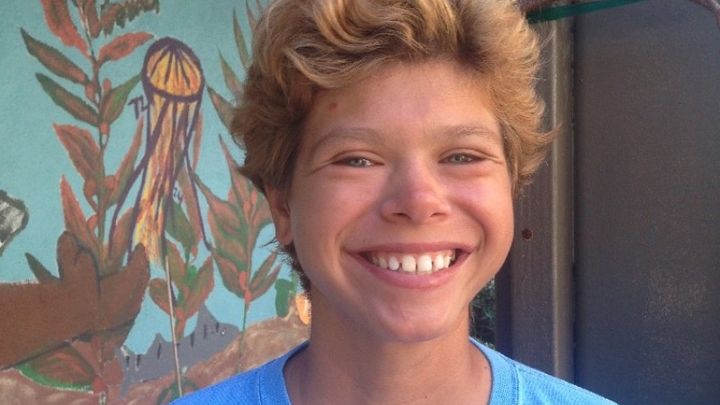
Samantha Ferri Glennwood House LB
Donation protected
Sammie is a happy young lady. She was diagnosed with Williams Syndrome a genetic disorder at the age of 5. Sammy is an adult today and 23 years old. She needs to be in a home where we can protect her. She is full of love and life.. Please help us keep Sammy at Glennwood. Thank you everyone.. The cost is $12,000 a year for housing. Please help we need to Pay now..
from Wendy Potter Sammie mom
My daughter Samantha Ferri was born in with the genetic disorder Williams Syndrome. As most of you who know her she is a bright loving young lady always smiling and wanting to hug you! She has been living at The Glennwood House in Laguna Beach a home for young adults with disabilities. It is a safe loving environment where she is able to go to work socialize with her own kind. We are so blessed to have this home here in Laguna where I can see her on a daily basis. The cost of this home has been financed these last couple of years by a private donor. I no longer have this donor. Samantha is in jeopardy of having to move because I cannot afford to support myself and her alone. I need 1,000 dollars a month for a year to keep her in Glennwood! I would so appreciate any help, this is not easy for me.
WS affects 1 in 10,000 people worldwide – an estimated 20,000 to 30,000 people in the United States. It is known to occur equally in both males and females and in every culture.
Unlike disorders that can make connecting with your child difficult, children with Williams syndrome tend to be social, friendly and endearing. Parents often say the joy and perspective a child with WS brings into their lives had been unimaginable.
But there are major struggles as well. Many babies have life-threatening cardiovascular problems. Children with WS need costly and ongoing medical care and early interventions (such as speech or occupational therapy) that may not be covered by insurance or state funding. As they grow, they struggle with things like spatial relations, numbers, and abstract reasoning, which can make daily tasks a challenge. As adults, most people with Williams syndrome will need supportive housing to live to their fullest potential. Many adults with WS contribute to their communities as volunteers or paid employees; often working at assisted living homes for senior citizens, hospitals and libraries, or as store greeters or veterinary aides.
from Wendy Potter Sammie mom
My daughter Samantha Ferri was born in with the genetic disorder Williams Syndrome. As most of you who know her she is a bright loving young lady always smiling and wanting to hug you! She has been living at The Glennwood House in Laguna Beach a home for young adults with disabilities. It is a safe loving environment where she is able to go to work socialize with her own kind. We are so blessed to have this home here in Laguna where I can see her on a daily basis. The cost of this home has been financed these last couple of years by a private donor. I no longer have this donor. Samantha is in jeopardy of having to move because I cannot afford to support myself and her alone. I need 1,000 dollars a month for a year to keep her in Glennwood! I would so appreciate any help, this is not easy for me.
WS affects 1 in 10,000 people worldwide – an estimated 20,000 to 30,000 people in the United States. It is known to occur equally in both males and females and in every culture.
Unlike disorders that can make connecting with your child difficult, children with Williams syndrome tend to be social, friendly and endearing. Parents often say the joy and perspective a child with WS brings into their lives had been unimaginable.
But there are major struggles as well. Many babies have life-threatening cardiovascular problems. Children with WS need costly and ongoing medical care and early interventions (such as speech or occupational therapy) that may not be covered by insurance or state funding. As they grow, they struggle with things like spatial relations, numbers, and abstract reasoning, which can make daily tasks a challenge. As adults, most people with Williams syndrome will need supportive housing to live to their fullest potential. Many adults with WS contribute to their communities as volunteers or paid employees; often working at assisted living homes for senior citizens, hospitals and libraries, or as store greeters or veterinary aides.
Organizer
Danielle Purcell Broker
Organizer
Laguna Beach, CA